第26章 Letter XIX(2)
Here we must remember that we have before us,not the infinite mind,but the finite.The finite mind is that which only becomes active through the passive,only arrives at the absolute through limitation,and only acts and fashions in as far as it receives matter.Accordingly,a mind of this nature must associate with the impulse towards form or the absolute,an impulse towards matter or limitation,conditions without which it could not have the former impulse nor satisfy it.How can two such opposite tendencies exist together in the same being?This is a problem that can no doubt embarrass the metaphysician,but not the transcendental philosopher.The latter does not presume to explain the possibility of things,but he is satisfied with giving a solid basis to the knowledge that makes us understand the possibility of experience.And as experience would be equally impossible without this autonomy in the mind,and without the absolute unity of the mind,it lays down these two conceptions as two conditions of experience equally necessary without troubling itself any more to reconcile them.Moreover,this immanence of two fundamental impulses does not in any degree contradict the absolute unity of the mind,as soon as the mind itself,-its selfhood -is distinguished from these two motors.No doubt,these two impulses exist and act in it,but itself is neither matter nor form,nor the sensuous nor reason,and this is a point that does not seem always to have occurred to those who only look upon the mind as itself acting when its acts are in harmony with reason,and who declare it passive when its acts contradict reason.
Arrived at its development,each of these two fundamental impulsions tends of necessity and by its nature to satisfy itself;but precisely because each of them has a necessary tendency,and both nevertheless have an opposite tendency,this twofold constraint mutually destroys itself,and the will preserves an entire freedom between them both.It is therefore the will that conducts itself like a power -as the basis of reality -with respect to both these impulses;but neither of them can by itself act as a power with respect to the other.A violent man,by his positive tendency to justice,which never fails in him,is turned away from injustice;nor can a temptation of pleasure,however strong,make a strong character violate its principles.
There is in man no other power than his will;and death alone,which destroys man,or some privation of self-consciousness,is the only thing that can rob man of his internal freedom.
An external necessity determines our condition,our existence in time,by means of the sensuous.The latter is quite involuntary,and directly it is produced in us,we are necessarily passive.In the same manner an internal necessity awakens our personality in connection with sensations,and by its antagonism with them;for consciousness cannot depend on the will,which presupposes it.This primitive manifestation of personality is no more a merit to us than its privation is a defect in us.Reason can only be required in a being who is self-conscious,for reason is an absolute consecutiveness and universality of consciousness;before this is the case,he is not a man,nor can any act of humanity be expected from him.The metaphysician can no more explain the limitation imposed by sensation on a free and autonomous mind than the natural philosopher can understand the infinite,which is revealed in consciousness in connection with these limits.Neither abstraction nor experience can bring us back to the source whence issue our ideas of necessity and of universality;this source is concealed in its origin in time from the observer,and its super-sensuous origin from the researches of the metaphysician.But,to sum up in a few words,consciousness is there,and,together,with its immutable unity,the law of all that is for man is established,as well as of all that is to be by man,for his understanding and his activity.The ideas of truth and of right present themselves inevitable,incorruptible,immeasurable,even in the age of sensuousness;and without our being able to say why or how,we see eternity in time,the necessary following the contingent.
It is thus that,without any share on the part of the subject,the sensation and self-consciousness arise,and the origin of both is beyond our volition,as it is out of the sphere of our knowledge.
But as soon as these two faculties have passed into action,and man has verified by experience,through the medium of sensation,a determinate existence,and through the medium of consciousness,its absolute existence,the two fundamental impulses exert their influence directly their object is given.The sensuous impulse is awakened with the experience of life -with the beginning of the individual;the rational impulsion with the experience of law -with the beginning of his personality;and it is only when these two inclinations have come into existence that the human type is realised.Up to that time,everything takes place in man according to the law of necessity;but now the hand of nature lets him go,and it is for him to keep upright humanity which nature places as a germ in his heart.
And thus we see that directly the two opposite and fundamental impulses exercise their influence in him,both lose their constraint,and the autonomy of two necessities gives birth to freedom.